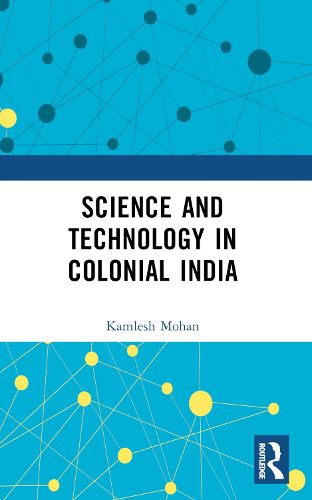Readings Newsletter
Become a Readings Member to make your shopping experience even easier.
Sign in or sign up for free!
You’re not far away from qualifying for FREE standard shipping within Australia
You’ve qualified for FREE standard shipping within Australia
The cart is loading…






This book is a significant contribution to the socio-political history of science and technology in India, combining a wholistic perspective with a strong regional flavour.
It revolves around two basic issues. First is the role of science and technology in empire-building in Asia, specifically in India, and financing its maintenance through maximum exploitation of its human, natural, agricultural and other resources by launching and executing a number of exploratory projects, termed as 'field sciences'. Such an imperial focus was undergirded by a crucial objective; the acquisition of hegemony through social control based on intimate knowledge of horizontal and vertical divisions in lndian society around the axes of religion and caste. Formalised as colonial ethnography by the administrators, it was institutionalised as a discipline in the British universities. Second concerns the decoding of the complex response of the Indian intelligentsia including the English-educated as well as the experts and advocates of classical and regional languages which were the key to indigenous knowledge in indigenous sciences, arts and literature.
The book also discusses the innovative use of print technology by Arya Samaj in recasting Hindu consciousness and its alternative of seeking historical guidelines in the past.
$9.00 standard shipping within Australia
FREE standard shipping within Australia for orders over $100.00
Express & International shipping calculated at checkout
This book is a significant contribution to the socio-political history of science and technology in India, combining a wholistic perspective with a strong regional flavour.
It revolves around two basic issues. First is the role of science and technology in empire-building in Asia, specifically in India, and financing its maintenance through maximum exploitation of its human, natural, agricultural and other resources by launching and executing a number of exploratory projects, termed as 'field sciences'. Such an imperial focus was undergirded by a crucial objective; the acquisition of hegemony through social control based on intimate knowledge of horizontal and vertical divisions in lndian society around the axes of religion and caste. Formalised as colonial ethnography by the administrators, it was institutionalised as a discipline in the British universities. Second concerns the decoding of the complex response of the Indian intelligentsia including the English-educated as well as the experts and advocates of classical and regional languages which were the key to indigenous knowledge in indigenous sciences, arts and literature.
The book also discusses the innovative use of print technology by Arya Samaj in recasting Hindu consciousness and its alternative of seeking historical guidelines in the past.